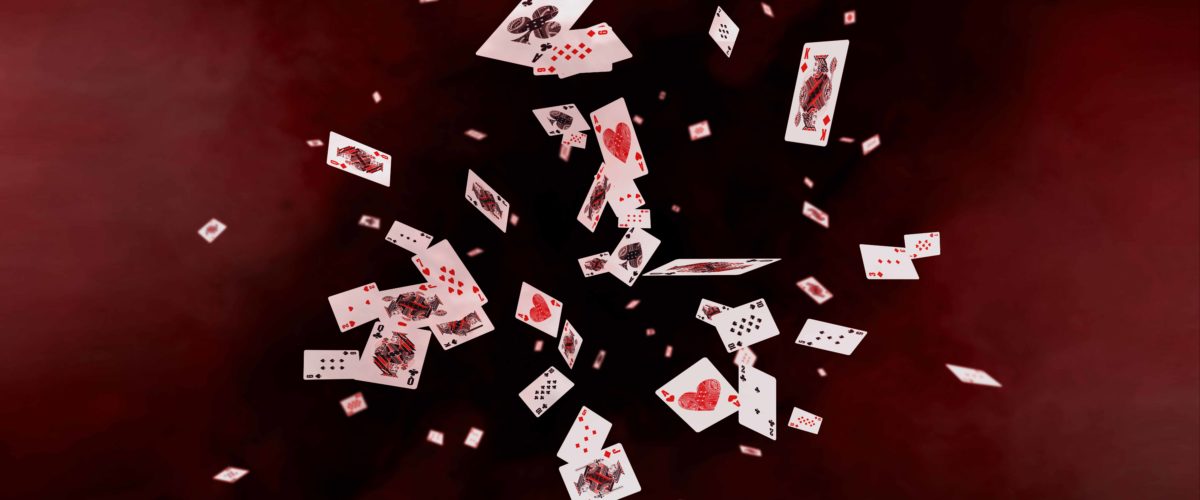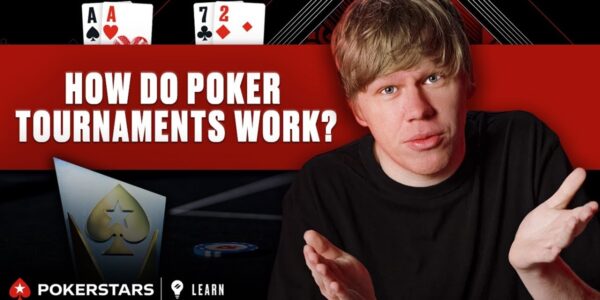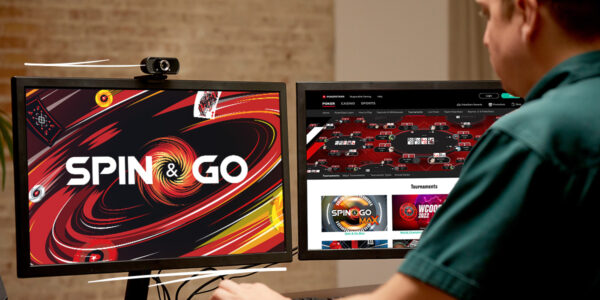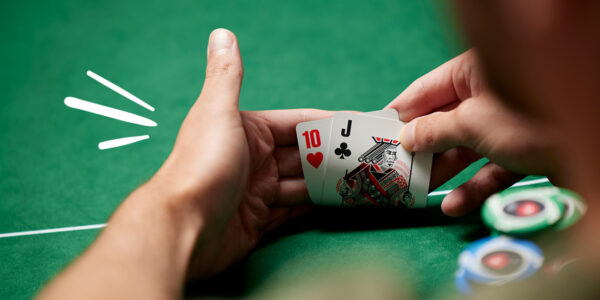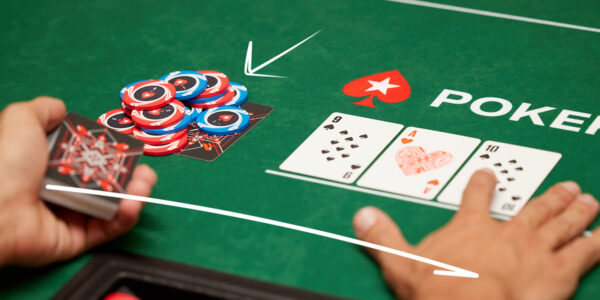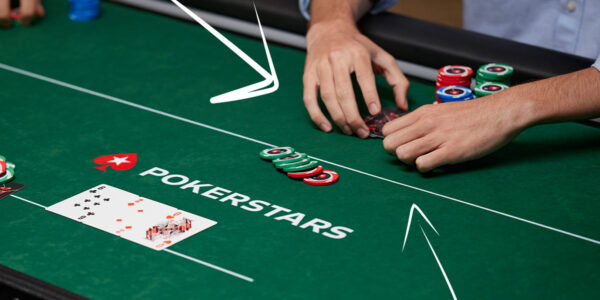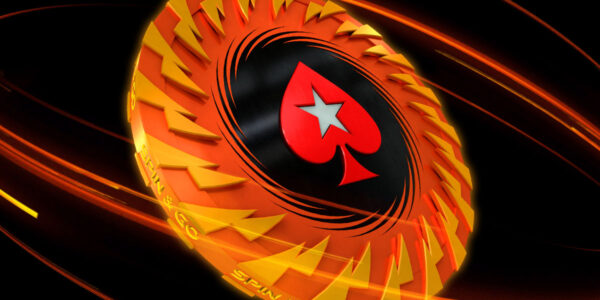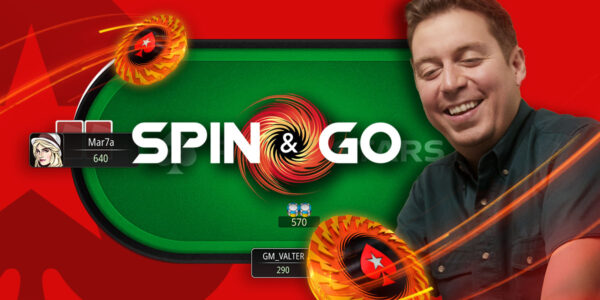Poker Terms & Glossary
The below gives explanations for the most popular examples of poker terminology. The Glossary is designed for you to use to check what all the various poker terms mean. Poker is a game that uses a lot of jargon, but you will quickly get used to the language.
A | B | C | D | E | F | G | H | I | J | K | L | M | N | O | P | Q | R | S | T | U | V | W | X | Y | Z |
Action
Making, or calling, a bet or raise. i.e. “giving action”.
All-in
When a player is all-in, they have bet all of their remaining chips, and can take no further active part in future betting rounds.
Angle/Angle Shooting
Attempting to manipulate the action or other players decisions through questionable or illegal behavior. Cheating.
Ante
Poker games like Stud are played with an ante; a forced bet that every player has to post before each round of betting. Antes are also introduced in the later levels of some No-Limit Hold’em tournaments.
Bad Beat
Losing a hand after getting action as an overwhelming favourite.
Backdoor Draw
A draw that requires two cards to complete, i.e. a flop with one heart when you hold two hearts in your hand.
Badugi
(1) Badugi is a relatively new type of poker game originally from Asia. Each player gets four cards, and there are three draws. The player with the lowest hand wins the pot.
(2) Four cards of different suits that don’t form a pair is a hand known as a Badugi.
Bankroll
Refers to the amount of money you have available solely for playing poker.
Barrel
To continue betting on future streets post flop after taking the betting lead on the current street.
Bet
The first bet made in a round of betting. If this bet is increased later in the same betting round, this is known as a raise.
Big Stack
A player who has a lot of chips.
Blind
A forced bet which has to be posted before each hand. The player to the left of the dealer posts the small blind, while the player two places left of the dealer posts the big blind. As a rule the big blind is twice the size of the small blind.
Blind Level
Describes the size of the forced blind bets in the current stage of a tournament. The size of the blinds increases with each new level.
Blind Stealing
A raise before the flop with a weak hand, with the aim of forcing all opponents to fold, and therefore winning the blinds. Works best from late position if all players have folded so far.
Bluff
When a player bets and/or raises without having a good hand, to try and make their opponent fold the better hand.
Bluff Catcher
A hand that is not strong enough to beat an opponent who is betting for value with a made hand, but only an opponent who is bluffing.
Board
The five community cards in the middle of the table in poker games like Texas Hold’em and Omaha.
Boat
(slang) A full house.
Bounty (tournament)
A tournament in which a portion of the prize pool is paid out in the form of bounties, which are won when you eliminate an opponent.
Break-even
To break-even means that neither a loss nor a profit has been made.
Bubble
Describes any significant threshold in a tournament. The most common tournament bubbles are the initial money bubble, and the final table bubble.
Bubbleboy
The player in a tournament eliminated directly before the paid places are reached, therefore going away empty-handed.
Burncard
The card that gets discarded by the dealer before the community cards are dealt, in order to prevent cheating.
Busted/Bust-out
When you are eliminated from a tournament after losing all your chips
Button
(1) A plastic disc which is passed clockwise each hand to determine the position of the nominal dealer.
(2) Named used to describe the nominal dealer in the current hand.
Buy-in
The amount of money players have to pay to enter a tournament. Most of this money goes into the prize pool, except for a small entry fee retained by the card room (also see rake).
Bring-in
A forced bet in Stud, which has to be placed by the player with the lowest open card.
Broadway
(1) Name of the highest-possible straight in poker, for e.g. Tc-Jc-Qh-Kd-As.
(2) A single card (T-x or higher) is also often called broadway or a broadway card.
Call
Calling means you are matching the last bet made.
Cap
The fourth and last possible raise in a fixed limit game.
Cash Game
Poker played for real money, with blind levels that stay the same. Players can come and go as they please, and buy new chips anytime they want.
Calling Station
A player who plays many hands in a very loose way. They will call often, but rarely raise or fold.
Check
If no bets have been made, a player has the option to check, i.e. stay in the hand without putting any more chips into the pot.
Check-Call
To check and then call an opponent’s bet.
Check-Raise
To check and then raise an opponent’s bet.
Chipleader
The player with the largest amount of chips in a tournament.
Cold Deck
When a very strong hand is beaten by a player who improves their hand on the board.
Community Cards
The five cards dealt face up in the center of the table, which can be used by all players.
Complete
(1) Hold’em: To call preflop from the small blind if no bets have been placed.
(2) Stud: The first raise in the first betting round.
Connector
Two or more connected cards, for e.g. 6c-5s. Connected cards of the same suit are called suited connectors (6s-5s for instance).
Continuation Bet
A bet made on the flop by the last player who raised preflop. Also known as a C-bet.
Coolered
To hold a strong hand, but lose the pot to an even stronger hand.
Crusher
A highly skilled winning poker player.
Cut-off
The player seated to the right of the dealer. A strong position to be in, because you are one of the last to act on every round of betting.
Dead Money
Money in a pot which comes from players who have already folded, and therefore cannot participate in the hand any longer.
Deal
An agreement between the players to alter the payout structure. Typically happens at a final table.
Dealer
(1) Live games: the person who deals the cards, sorts out the pot and watches over the game.
(2) Online: the position of the nominal dealer, marked by a dealer button, which is passed on clockwise.
Defending the Blinds
When a player is in one of the blinds and plays to try and enusre they keep their chips by winning the pot.
Dominated Hand
If two players hold a card of the same rank, the player with the better kicker is said to dominate their opponent. For e.g. If Player A holds Kc-As, they dominate Player B who holds Kd-Qd.
Donk Bet
The term used for a bet that is made into the aggressor from the prior street, instead of checking to them.
Door Card
The first open card dealt in Stud poker games.
Double-up
To double your stack, usually when all-in against an opponent who has more chips than you.
Downswing
A run of bad luck which can often make players start playing bad.
Draw
A poker hand which needs additional cards to improve or complete.
Double Suited
Omaha starting hand that includes two times two cards of the same suit (for e.g. As-Kd-Jd-9s).
Equity
The winning odds multiplied by the pot size. For e.g. if you have a winning chance of 40% and there is $10 in the pot, your equity is $4.
Back to top
Feeler Bet
A small to medium sized bet to made to gauge your opponents reactions. Also known as a probe bet.
Final Table
The last table in a tournament, usually played nine or ten handed, and where the biggest cash prizes are paid.
Fish
A very bad or inexperienced poker player.
Floorman
The floorman is a casino employee who mediates between players and solves disputes between them or the dealer. The floorman has more power than the dealer
Flop
The first three community cards dealt in flop games like Hold’em or Omaha.
Flush
A combination of five cards of the same suit, for e.g. As-Qs-Ts-6s-3s.
Flush Draw
When a player has a combination of four cards of the same suit, with only one more card of this suit missing to complete the flush.
Fold
To discard your cards and place them into the muck. A player who folds is no longer in the hand and can win no part of the pot.
Fold Equity
The probability that one or all players will fold behind you.
Four Bet (4B)
Re-raising. The initial wager is a bet, the first raise is the 2nd bet, a re-raise is the 3rd bet, and another re-raise is the 4th bet.
Free Play
Chance to see the next community cards without having to place a bet.
Freeroll
(1) Chance to make profit without risk (for e.g. without having to invest money).
(2) A free-to-enter tournament with no buy-in.
Full House
A poker hand consisting of three of a kind and another pair.
Full Ring
A cash game table with nine or ten players. Opposite of shorthanded.
Grinder
A disciplined winning poker player who makes steady profit by playing many hours and minimises risk.
Gutshot
An unfinished straight with an inside card needed to complete. For e.g. a player has Ah-2s and the board shows Td-4s-5c. In this case, a 3x would complete the straight.
Hand
(1) Part of the game in which cards are dealt, chips are bet and the pot is won. After that, the button is moved to the left in games like Texas Hold’em, and the next hand begins.
(2) The best five card combination made using the hole cards and the community cards.
Heads-up
A hand or game with only two players.
High Card
The lowest poker hand, with less value than a pair.
High Roller
(1) A player who plays for high stakes.
(2) A tournament with a very high buy in.
Hijack
The position at the table two seats to the right of the button, and to the immediate right of the cut off.
Hold’em
Short name for Texas Hold’em Poker.
Hole Cards
The cards each player gets dealt face down in the beginning of a hand. Using these and the community cards, a player can assemble the best possible five card combination.
Implied Odds
Calculation of odds in relation to the estimated final size of the pot. Consequently, expected profits will be added on to the odds. For e.g. you have an open-ended straight draw on the turn and get pot odds of 4,5:1. If you expect to hit and to gain another big bet on the river, you will have implied odds of 5,5:1.
Jam
(slang) To bet or raise all in.
Back to top
Kicker
The side card one holds along with a pair. For e.g. if your hole cards are As-5s and the board shows 4c-5h-3c-Js-4h, you have two pair with an ace kicker. In such cases where two players hold the same hand rank, the higher kicker decides which player wins the hand.
Lay-down
To fold your hand.
Limit
(1) Short for Fixed Limit”, which means that all minimum and maximum betting intervals are fixed at all times.
(2) The size of the blinds or the maximum buy-in which indicates the amount of money played for. Can also refer to No-Limit or Pot-Limit” games.
Limp/Limper
A preflop action in which the big blind is just called instead of raised
Live Cards
Refers to cards that haven’t been opened yet and are possibly still in the card deck.
Lojack
The position at the table three seats to the right of the button and to the immediate right of the hijack.
Low Card
A card that can form part of a qualifying low hand games like Stud Hi-Lo and Omaha Hi-Lo.
Made Hand
A complete hand with very little potential for improvement.
Main Event
The term given to the designated Main Event of a poker series, often this is the most prestigious event on the schedule.
Marginal Hand
A mediocre or medium strength holding. When referring to starting hole cards, a weak starting hand.
Min-cash
To finish in the money in a poker tournament but receive the lowest possible payout
Monotone
(1) Starting hand in Omaha, with all four cards of the same suit.
(2) A board where all cards are the same suit.
Monster
To have a very strong hand.
Much (the)
To fold (muck) your cards in any given poker hand, the muck is the term for all folded cards in a given hand.
Mystery bounty
A style of tournament where the bounty prize for eliminating a player is unknown, until you have eliminated your opponent. Typically these bounties range from a small amount to one that is many times the buy-in for the tournament.
Nose bleeds
A reference to the highest stakes available. Also nose bleed stakes.
Nuts
The best possible hand in a given situation.
Nut straight
To hold the best possible straight at any given time e.g. 10-9 on a 7-8-J-4-2 board
Odds
A form of presenting probabilities. The probability of making a hand is set in relation to the probability of not making a hand. For e.g. if you win with a probability of 20%, you will lose with a probability of 80%. The odds are therefore 80:20 or 4:1.
Offsuit
Two cards of different suits.
Omaha
A poker game played with four hole cards. Two of the hole cards and three community cards must be used to form a hand. Apart from that, the rules of the game are identical to Texas Hold’em.
Open Pair
A pair lying openly on the board
Option
The choice of the player in the big blind to either check or raise, providing there have been no raises before them.
Orbit
The number of hands it takes for the button to pass round the table, for example at an eight handed table an orbit would consist of eight hands.
Out of Position (OOP)
You are out of position when you are one of the first to act in a betting round.
Overcard
A card higher than the highest card on the board. For example, when dealt on a board, the ace is an overcard but the ten is not.
Overpair
A pocket pair which is higher than all of the community cards on the board.
Package(s)
A prize to live tournaments, which includes both the buy-in to the tournament and the cost of hotel accommodation.
Pocket Cards
Two face down cards each player gets dealt in the beginning of a Texas Hold’em game. Also called Hole cards.
Pocket Pair
Two cards of the same rank, dealt as a starting hand.
Poker Tracker
Software which tracks the hands you have played, enabling you to monitor your play and that of your opponents, and perform detailed analysis on your hands at a later time.
Position
Refers to a player’s seat in relation to the dealer. The further away you are from the dealer, the better your position is, because you will act later in each betting round – a big advantage that lets you evaluate your opponents’ betting patterns. The positions in detail:
• Blinds: The two players to the left of the dealer are called Small Blind and Big Blind. These are by far the worst positions in the game because you have to act first in any betting round except pre-flop and you are forced to put money in the pot before looking at your cards.
• Late position (LP): the dealer (usually called the ‘button’) and the ‘cut-off’ to the immediate right of the dealer are sitting in late position. This is the best position you can be in.
• Middle position (MP): the three players on the right hand side of the cut-off are in middle position.
• Early position (EP): the two players to the right of the middle position players are in early position. They act first pre-flop and after the blinds in all the other betting rounds. The first player to act pre-flop is often also called ‘under the gun’ (UTG).
If there are fewer than nine players at the table, disregard early positions. If there are only five players for example, there are two blinds, two late position players and one person in middle position.
Pot-Limit
In a pot-Limit game, a player may only bet up to the size of the total pot when it’s their turn. The most popular Pot-Limit form of poker is Pot-Limit Omaha, but you can also play Hold’em and draw poker as Pot-Limit.
Pot Odds
The current amount of money in the pot compared to the amount you have to put into the pot to be able to continue playing. The greater the pot odds, the better.
Post-flop
Play on the flop and in subsequent betting rounds.
Pre-flop
Play that takes place before the flop in flop games like hold’em or Omaha.
Prize pool
The amount of money available for the players to win in any given tournament
Probe Bet
A small to medium sized bet to made to gauge your opponents reactions. Also known as a feeler bet.
Quads
(slang) The hand rank of four of a kind.
Qualifier
Similar to a satellite, a qualifier is a smaller buy-in tournament to a target larger tournament. Also refers to someone who has qualified to a target event via a satellite.
Race
An all-in situation in which the two (or more) hands in question have a similar percentage chance to win the pot.
Rail
The place where spectators can observe live (or online) poker tournaments.
Rainbow
(1) Hold’em: A flop or turn is described as rainbow when all three or four cards are of different suits.
(2) Omaha: A starting hand consisting of cards with all four different suits.
Raise
To increase the amount of the previous bet.
Rake
Money or percentage a poker room claims from each pot, or from the entry fee in a tournament.
Range
All hands that an opponent might possibly hold at a certain point in time.
Re-entry
A tournament which allows players to re-enter should they be eliminated.
Reverse Domination
In Hold’em, you are dominated if an opponent holds a card of the same rank as yours, but with a better kicker. If the dominated player then hits a pair with the lower kicker, it’s known as reversed domination.
Reverse Implied Odds
To calculate implied odds, potential profits are added to the pot. Reversed implied odds refer to how much a player expects to lose on later betting rounds. The loss is subtracted from the pot when calculating the odds.
Rip
(slang) To bet or raise all in.
River
The fifth and last community card.
Royal Flush
The best possible hand in poker – an ace-high straight flush. For e.g. As-Ks-Qs-Js-Ts.
Runner-Runner
An incomplete poker hand where additional cards are needed on both the turn and river to compete, e.g. if you hold two hearts and the flop contains one, you have a runner-runner draw to a heart flush.
Runner-up
The second place finisher in a tournament.
Satellite
A tournament with a moderate buy-in, where the prize is a seat in a bigger tournament.
Score
The amount of money a player won in a poker tournament, often mentioned when a player has recorded their biggest tournament cash.
Seat
Seat at the table that a player gets assigned to.
Second Barrel
A second bet on the turn after a flop bet. Correspondingly, a third barrel is a third bet on the river.
Semi-bluff
A semi-bluff is a bet or a raise with a hand that is not the best, but has a reasonable chance of improving up to the river (for e.g. a flush draw). The goal is to make all opponents fold. If this doesn’t work out, there is still a chance of winning if the hand improves.
Set
Three of a kind consisting of a pocket pair and one community card.
Shark
Very good player who makes some profit; opposite of fish
Shorthanded
Poker with only three to six players. Opposite of full ring.
Shortstack
A player with a small stack in a tournament.
Showdown
After all betting rounds have completed, all players remaining in the hand reveal their cards to see who has made the best five card poker hand to win the pot.
Shove
To bet or raise all in.
Side events
Events at poker festival that are usually of a lower buy-in to the Main/Championship events and are generally seen to carry less importance.
Single-suited
Starting hand in Omaha. Two cards of the same suit, two cards of mixed suits (for e.g. Ah-Ad-Th-7s).
Slow Play
When a player acts cautious despite having a very strong hand, the aim being to deceive their opponents about the true strength of their holding.
Soul-read
The act of making an incredible play, usually in live poker, based on physical tell(s).
Speculative Hand
A temporarily weak hand with potential to improve.
Spinning it up (spin up)
The act of turning a small number of chips, into a large number of chips, usually in a very short space of time.
Split Pot
A pot which gets split between two or more players who have cards of equal value.
Stack
Amount of chips or money a player can use at the table.
Stack size
The number of chips a player has, usually quantified in number of big blinds e.g. my opponent was playing a stack size of 50 big blinds
Stack to Pot Ratio (SPR)
SPR is short for Stack to Pot Ratio. To calculate the SPR we take the effective stack size and divide by the pot size:
SPR = EFFECTIVE STACK SIZE / POT SIZE
Steam
To get annoyed about lost hands and play badly as a result. Also see Tilt.
Stone bubble
When the number of players left in a tournament is one greater than the number of players who will make the money.
Straight
Five cards in a row, for e.g. 9x-8x-7x-6x-5x.
Straight Draw
A card combination with one card missing to complete a straight. Also see Gutshot.
Straight Flush
A straight of one suit, for e.g. 9h-8h-7h-6h-5h.
Street
Betting rounds, like the Flop, Turn and River.
Structure
The blind structure of any given tournament. Usually quantified in terms of speed e.g. regular, turbo or hyper-turbo
Stud
Poker games in which players get dealt cards face up as well as face down. Seven Card Stud and Razz are popular examples.
Suck-out
When a player is lucky and beats a superior hand. Also see Bad Beat.
Suit
Spades, clubs, hearts and diamonds.
Suited
Cards of the same suit (Spades, clubs, hearts or diamonds).
Table Stake
The amount that a player can bet and bring to the table in a cash game.
Tank
To take a long time to make a decision during a hand of poker e.g. he was in the tank for five minutes.
Third Barrel
A bet on the river after having bet on the flop and turn.
Three-Bet (3B)
A re-raise. The initial wager is a bet, the first raise is the 2nd bet, and a re-raise is the 3rd bet.
Tight
To play very few hands only, and fold all weak or marginal hands.
Tilt
To respond badly to a bad beat or downswing by letting it have an adverse affect on your game.
Tournament dollars
A form of currency on PokerStars that can only be used to play tournaments.
Trips
Three cards of the same rank, for e.g. Kh-ks-kc-7s-5c.
Turn
The fourth community card in flop games, also called fourth street.
Trash/Trash Hand
A very poor starting hand.
Underpair
A pocket pair which is lower than some or all of the community cards on the board. E.g. if you have QQ and the flop is K-7-3, you have an underpair to the K. With 22 you would have an underpair to the board.
Under the Gun
The name given to the player who acts first on the opening round of betting, left of the big blind. This is not an ideal position because you have to act very early.
Upswing
A run of good luck, but not usually as a result of skilful play.
Variance
The difference between expected and actual results.
Waiting list
Most common in cash games, if all tables are full, then a waiting list for participants who wish to play will be started and when someone leaves the game, the player at the top of the waiting list will be offered the open seat.
Walk
A player is given a walk when all players fold preflop to them in the big blind, and they win the pot uncontested without having to act.
Wheel
A straight with the lowest value (ace to five). It’s called the wheel because the ace is used as the lowest card in this situation.


